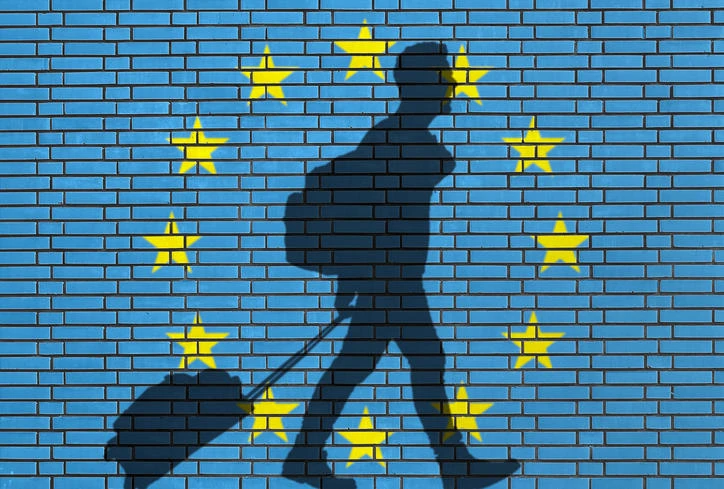Since visa liberalization on January 1, 2024, the number of asylum seekers from Kosovo in the European Union has significantly increased. Now, a proposal by the European Commission could mean they will be forced to return to Kosovo faster.
The Commission has proposed that Kosovo and six other countries be designated as “safe countries”, making it possible to expedite the return procedures for their asylum seekers.
This proposal now awaits approval from the European Parliament and the Council and includes seven countries: Kosovo, Bangladesh, Colombia, Morocco, Tunisia, Egypt, and India — from which 200,000 people applied for asylum last year.
What caused the rise in applications?
Since January 1, 2024, Kosovars have been able to travel visa-free to 29 Schengen countries for up to 90 days within a six-month period — for tourism, family visits, or similar purposes, not for work or asylum.
Numerous organizations had warned even before liberalization that it could worsen migration trends — a prediction now backed by Eurostat data.
Although not as severe as some had warned, the upward trend continues this year. France remains the top destination, followed by Germany, which has seen many Kosovars apply due to its simplified employment visa procedures.
Among Kosovar asylum seekers, the majority are under 18 and male, though the gender gap is narrowing.
Following visa liberalization, the number of Kosovars returned to Kosovo has also risen due to repatriation agreements. In just the first quarter of 2025, nearly half as many were returned as during the entire year of 2023 — before liberalization.
Potential consequences?
The surge in asylum applications may jeopardize Kosovo’s visa liberalization agreement with the EU.
The EU’s Visa Suspension Mechanism allows temporary suspension of visa-free travel for non-EU countries like Kosovo under certain conditions:
- A 50%+ increase in irregular migration
- A 50%+ increase in asylum applications with low acceptance rates (around 3-4%)
- Declining cooperation on repatriation
- Increased security risks (e.g., serious criminal activity)
So far, the EU has not expressed concerns about Kosovo’s migration trend, nor have Kosovar businesses reported mass labor migration.
Still, the EU is reviewing ways to toughen this mechanism to more easily reinstate visa requirements for 61 countries, including Kosovo and others in the Western Balkans.







